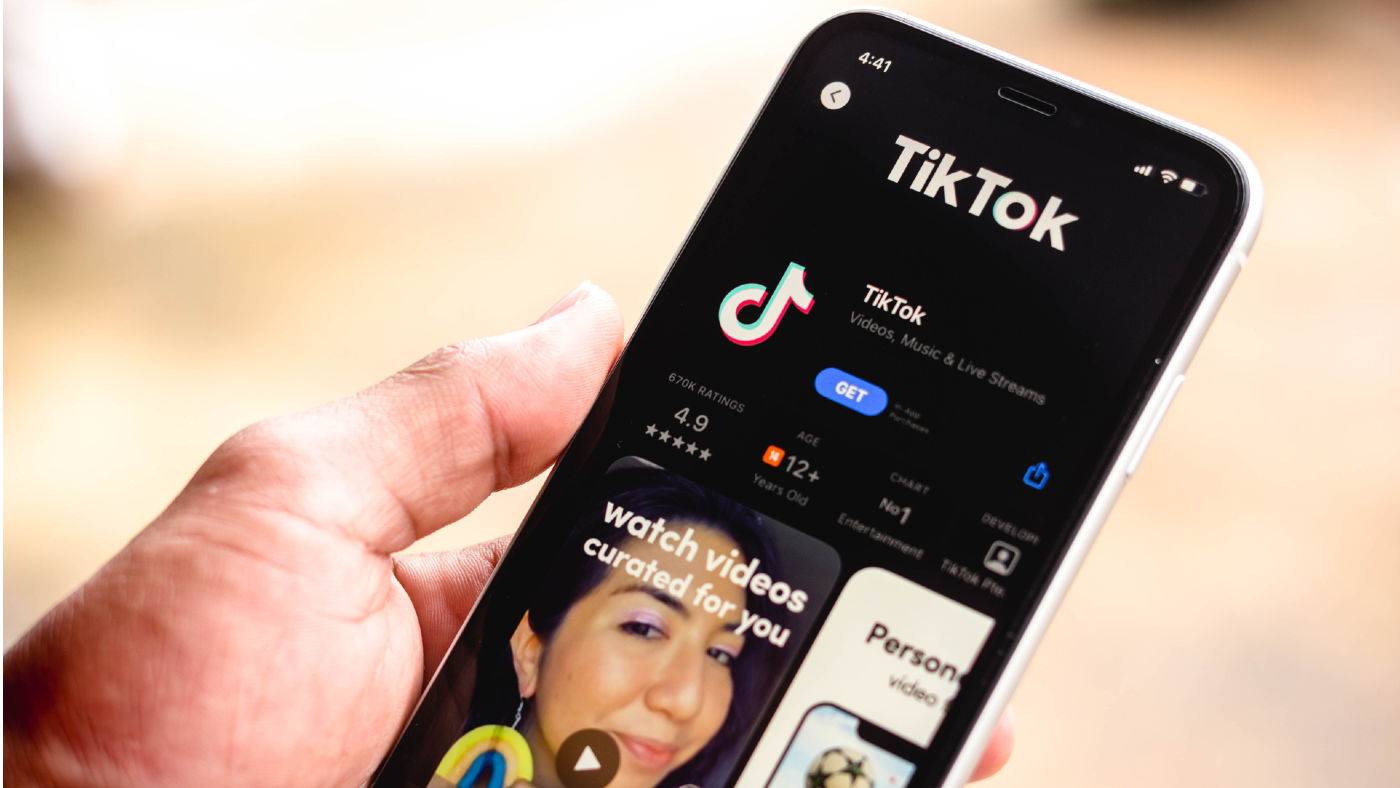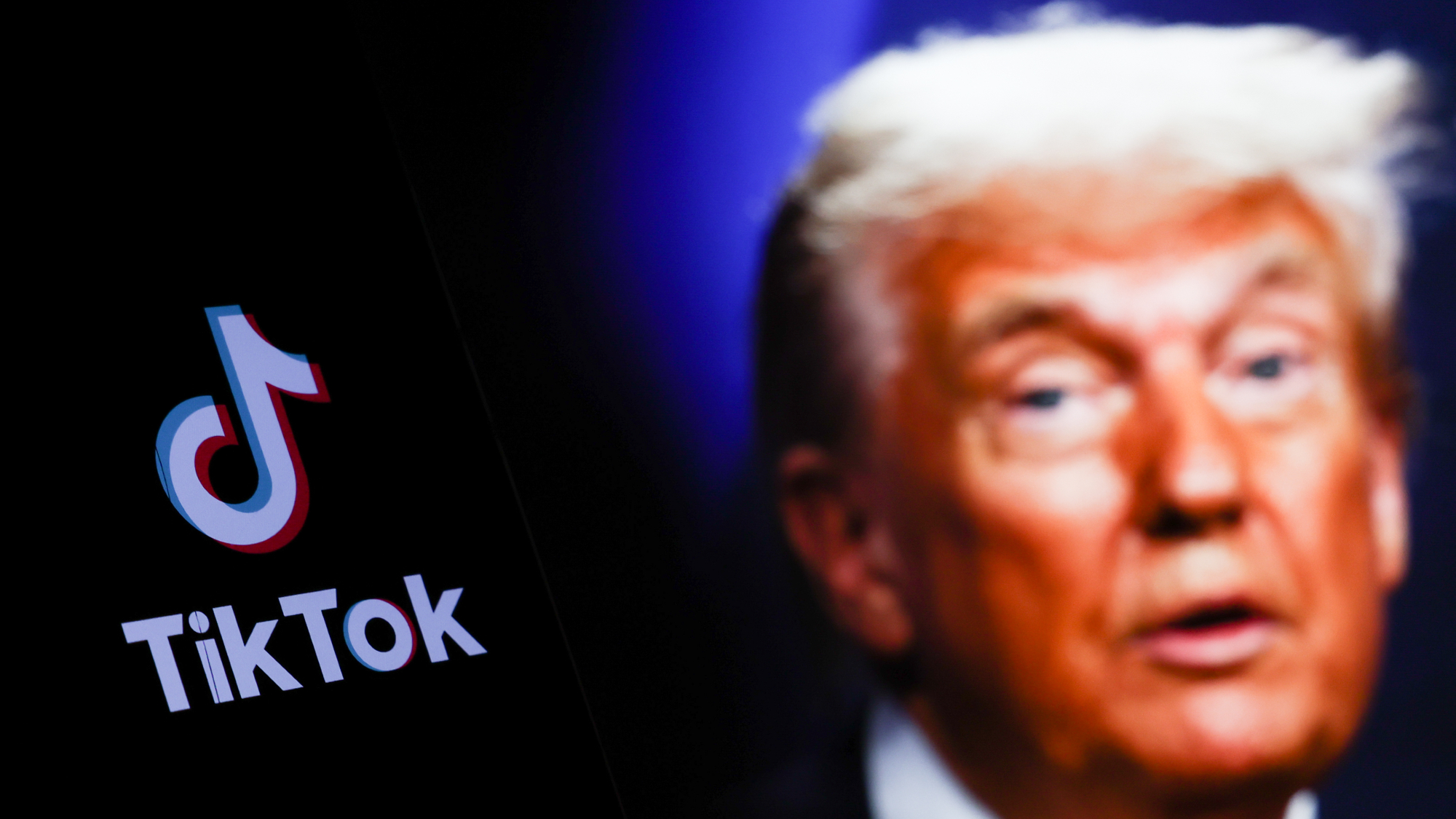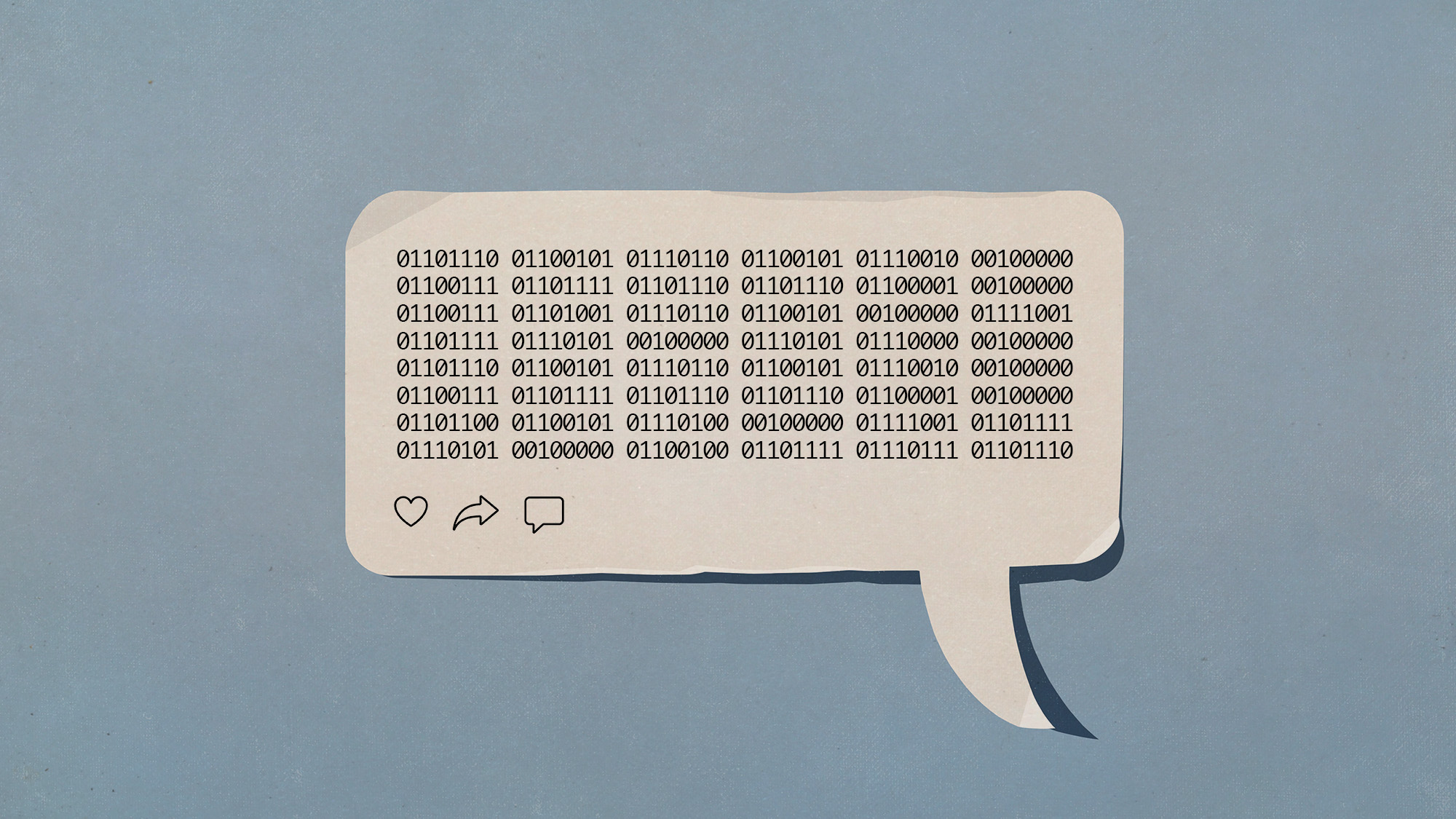The ‘blackout challenge’ and why it’s so dangerous
Death of Scottish teen linked to social media craze blamed for Archie Battersbee tragedy

A free daily email with the biggest news stories of the day – and the best features from TheWeek.com
You are now subscribed
Your newsletter sign-up was successful
A mother has told how her teenage son died after passing out in front of his friends online while allegedly performing the same TikTok challenge blamed for the death of 12-year-old Archie Battersbee.
Leon Brown was found unresponsive in his bedroom at this home in Cumbernauld, Lanarkshire, on 25 August. His mother, Lauryn Keating, told the Daily Record that the 14-year-old’s friends said they had been doing the viral “blackout challenge” during a Facetime call.
The teenagers “probably thought” doing the challenge would be “a laugh”, said Keating. She added: “One of the kids who he was on Facetime with told me what he had done. She said they thought they would wake up. But Leon didn’t come back around. It went horribly wrong.”
The Week
Escape your echo chamber. Get the facts behind the news, plus analysis from multiple perspectives.

Sign up for The Week's Free Newsletters
From our morning news briefing to a weekly Good News Newsletter, get the best of The Week delivered directly to your inbox.
From our morning news briefing to a weekly Good News Newsletter, get the best of The Week delivered directly to your inbox.
What is the ‘blackout challenge’?
Also known as the “pass-out game” or the “choking game”, the challenge “involves teenagers depriving themselves of oxygen to achieve a high, which causes them to lose consciousness and faint”, the Irish Examiner reported.
Dr Nick Flynn, a GP in Cork, told the paper that the risks associated with the challenge include fainting, seizures and potentially fatal brain damage. He explained that lack of oxygen to the brain resulting from such asphyxiation is “similar to when someone is drowning, choking, or having a cardiac arrest”.
“If you have low oxygen to the brain for over three minutes, you can get brain damage and if you have low oxygen to the brain for over five minutes, it can result in death,” Flynn said.
Although similar dares have been around for many years, the blackout challenge has recently resurfaced – and been linked to a series of tragedies. In July, two parents sued the social network TikTok in the US, “claiming its ‘dangerous’ algorithms are to blame for their children’s deaths”, The Guardian reported.
A free daily email with the biggest news stories of the day – and the best features from TheWeek.com
The parents of the girls – eight-year-old Lalani Erika Walton, from Texas, and nine-year-old Arriani Jaileen Arroyo, from Wisconsin – were represented by the Social Media Victims Law Center, a legal resource for families of children harmed by social media addiction and abuse.
The lawsuit claimed that “at all times relevant, TikTok’s algorithm was designed to promote ‘TikTok Challenges’ to young users to increase their engagement and maximise TikTok’s profits”.
The platform is also being sued by the family of a ten-year-old girl, Nylah Anderson, whose death was linked to the blackout challenge. After the wrongful death lawsuit was filed in May, a TikTok spokesperson told The Washington Post that the “disturbing ‘challenge’, which people seem to learn about from sources other than TikTok, long predates our platform and has never been a TikTok trend”.
“We remain vigilant in our commitment to user safety and would immediately remove related content if found,” the spokesperson said, adding that the company had made it impossible to search for videos using the hashtag #BlackoutChallenge.
But the mother of British schoolboy Archie Battersbee told The Mirror last month that “the social media companies don’t do enough to stop harmful content online”.
“It’s out there and people are grooming our children to do these challenges, it’s disgusting,” said Hollie Dance, who found Archie unconscious with a ligature round his neck at their home in Southend, Essex, in April. He was in a coma for four months before his life support was turned off on 6 August, after his parents lost their legal battle to keep him alive.
His mother told the paper that she believed the deaths of more than 80 other children were linked to the blackout challenge. “The people – they’re often adults, not children – who are demonstrating these challenges are sick,” Dance said, adding: “The police and the government need to work together to stop this.”
What have politicians said?
The Conservative Party has come under fire for delaying the much-anticipated Online Safety Bill, which is intended to protect internet users from harmful content.
A spokesperson from the Department for Digital, Culture, Media and Sport told The Mirror that the bill would “force tech firms to protect children from dangerous viral stunts”. The spokesperson added that “failing firms will face huge fines or have their sites blocked”.
Liberal Democrat digital spokesperson Jamie Stone criticised delays in passing the proposed legislation. “It’s more than four years since Conservative ministers promised new laws to tackle online harms, but we’re still waiting,” said Stone. “We need clear, tough laws.”
What else has TikTok said?
In response to the death of Leon Brown last week, a spokesperson for TikTok said: “Our deepest sympathies go out to the family for their tragic loss. The safety of our community is our priority, and we take any claim about a dangerous challenge very seriously. Content of this nature is prohibited on our platform and would be removed if found.”
Anyone searching for #BlackOutChallenge or other similar terms will now be shown a message that directs them to the company’s safety centre.
Chas Newkey-Burden has been part of The Week Digital team for more than a decade and a journalist for 25 years, starting out on the irreverent football weekly 90 Minutes, before moving to lifestyle magazines Loaded and Attitude. He was a columnist for The Big Issue and landed a world exclusive with David Beckham that became the weekly magazine’s bestselling issue. He now writes regularly for The Guardian, The Telegraph, The Independent, Metro, FourFourTwo and the i new site. He is also the author of a number of non-fiction books.
-
 Sepsis ‘breakthrough’: the world’s first targeted treatment?
Sepsis ‘breakthrough’: the world’s first targeted treatment?The Explainer New drug could reverse effects of sepsis, rather than trying to treat infection with antibiotics
-
 James Van Der Beek obituary: fresh-faced Dawson’s Creek star
James Van Der Beek obituary: fresh-faced Dawson’s Creek starIn The Spotlight Van Der Beek fronted one of the most successful teen dramas of the 90s – but his Dawson fame proved a double-edged sword
-
 Is Andrew’s arrest the end for the monarchy?
Is Andrew’s arrest the end for the monarchy?Today's Big Question The King has distanced the Royal Family from his disgraced brother but a ‘fit of revolutionary disgust’ could still wipe them out
-
 Moltbook: The AI-only social network
Moltbook: The AI-only social networkFeature Bots interact on Moltbook like humans use Reddit
-
 Are Big Tech firms the new tobacco companies?
Are Big Tech firms the new tobacco companies?Today’s Big Question A trial will determine whether Meta and YouTube designed addictive products
-
 TikTok finalizes deal creating US version
TikTok finalizes deal creating US versionSpeed Read The deal comes after tense back-and-forth negotiations
-
 Is social media over?
Is social media over?Today’s Big Question We may look back on 2025 as the moment social media jumped the shark
-
 Australia’s teen social media ban takes effect
Australia’s teen social media ban takes effectSpeed Read Kids under age 16 are now barred from platforms including YouTube, TikTok, Instagram, Facebook, Snapchat and Reddit
-
 Sora 2 and the fear of an AI video future
Sora 2 and the fear of an AI video futureIn the Spotlight Cutting-edge video-creation app shares ‘hyperrealistic’ AI content for free
-
 Trump allies reportedly poised to buy TikTok
Trump allies reportedly poised to buy TikTokSpeed Read Under the deal, U.S. companies would own about 80% of the company
-
 What an all-bot social network tells us about social media
What an all-bot social network tells us about social mediaUnder The Radar The experiment's findings 'didn't speak well of us'